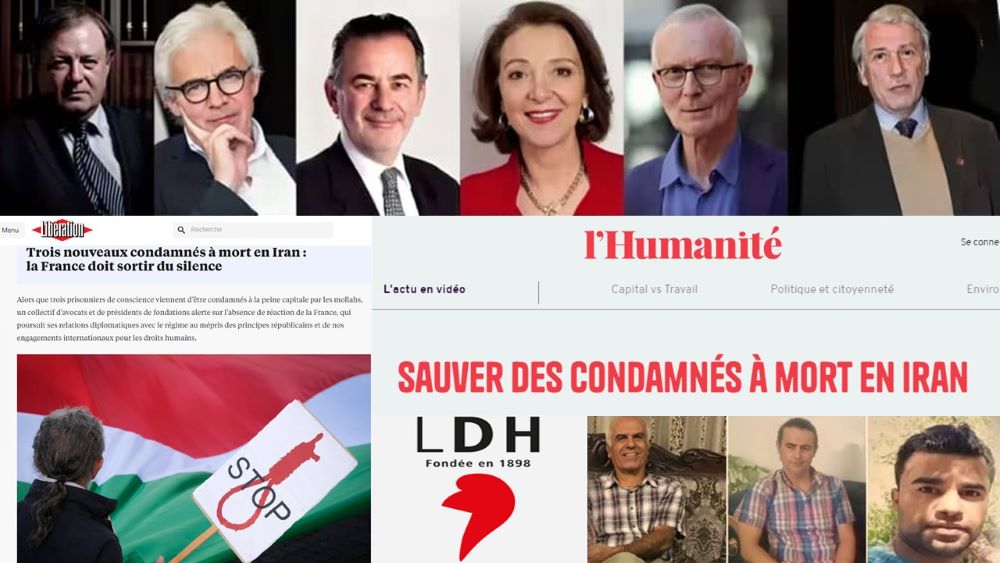
In a powerful joint article published in Libération, L’Humanité*, and on the French Human Rights League’s website, a group of prominent French lawyers and human rights defenders has called for international relations with Iran to be contingent on a moratorium on executions. The article, written in response to the rising number of political executions in Iran, was co-authored by leading figures including Dominique Attias, President of the European Bar Foundation; Patrick Baudouin, Honorary President of the French Human Rights League; William Bourdon, Lawyer and Founder of the Sherpa Association; Jean-François Legaret, President of the Foundation for Middle East Studies (Femo); Jean-Pierre Mignard, Lawyer and essayist; and Gilbert Mitterrand, President of the Danielle-Mitterrand Foundation France-Libertés.
The article follows recent death sentences handed down by the Iranian judiciary against three political prisoners: Behrouz Ehsani, Mehdi Hassani, and Mohammad Javad Vafa’i Thani. These men were condemned to death for their participation in anti-government protests and alleged connections to the People’s Mojahedin Organization of Iran (PMOI/MEK). The lawyers and activists voiced deep concern over the apparent lack of response from the French government and urged immediate international intervention to stop the executions.
The article also highlights the rise of a movement inside Iran known as “No Execution Tuesdays,” in which prisoners across the country protest the death penalty by going on hunger strikes every Tuesday. This movement is a symbol of growing resistance to the Iranian regime’s repressive tactics.
The authors warn that the silence of Western governments and media, particularly in France, amounts to complicity in the ongoing atrocities. “Three more people have been sentenced to death in Iran, but this has gone unreported by our media. Have we become indifferent to the horrors unfolding around us?” they ask.
Trois nouveaux condamnés à mort en Iran : la France doit sortir du silence https://t.co/v4dtgZ0R4W 🙏🙏
— Jean-Pierre Mignard (@jpmignard) October 11, 2024
The death sentences of Behrouz Ehsani, 69, Mehdi Hassani, 48, and Mohammad Javad Vafa’i Thani, 29, a former boxing champion, exemplify the Iranian regime’s strategy of suppressing dissent by instilling fear. In addition to these three, seven other political prisoners are facing imminent execution on similar charges, underscoring the regime’s relentless efforts to crush opposition.
The article also references an August 2024 UN report by Professor Javaid Rehman, former Special Rapporteur on human rights in Iran. The report condemned Iran for decades of “atrocity crimes,” including crimes against humanity, genocide, and the extrajudicial killings of thousands of political prisoners in the 1980s. According to the authors, these crimes persist today with impunity, while the international community turns a blind eye.
The authors call on their government and the international community to condition diplomatic and economic relations with Iran on a moratorium on executions. They assert, “Our silence and ongoing diplomatic engagement with a regime driven by executions, while ignoring the unfolding catastrophe in Iran, is a betrayal of the values of our republic and our international human rights obligations.”
The article concludes with a strong call to action, urging the international community to mobilize its resources to prevent further executions. The authors argue that diplomatic silence and inaction only empower the Iranian regime to continue its atrocities.
In a final, heartfelt message, the authors express their solidarity with the Iranian people and their resistance, stressing the importance of standing with them in their struggle for freedom and justice.